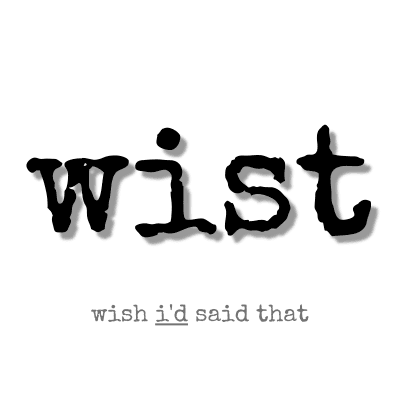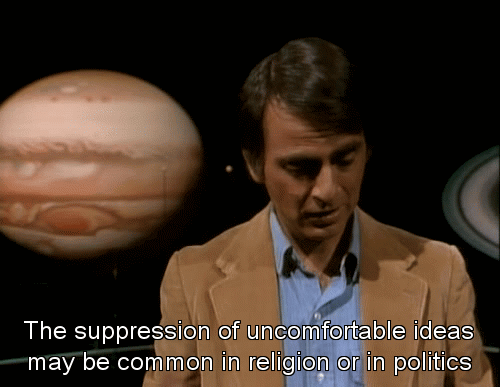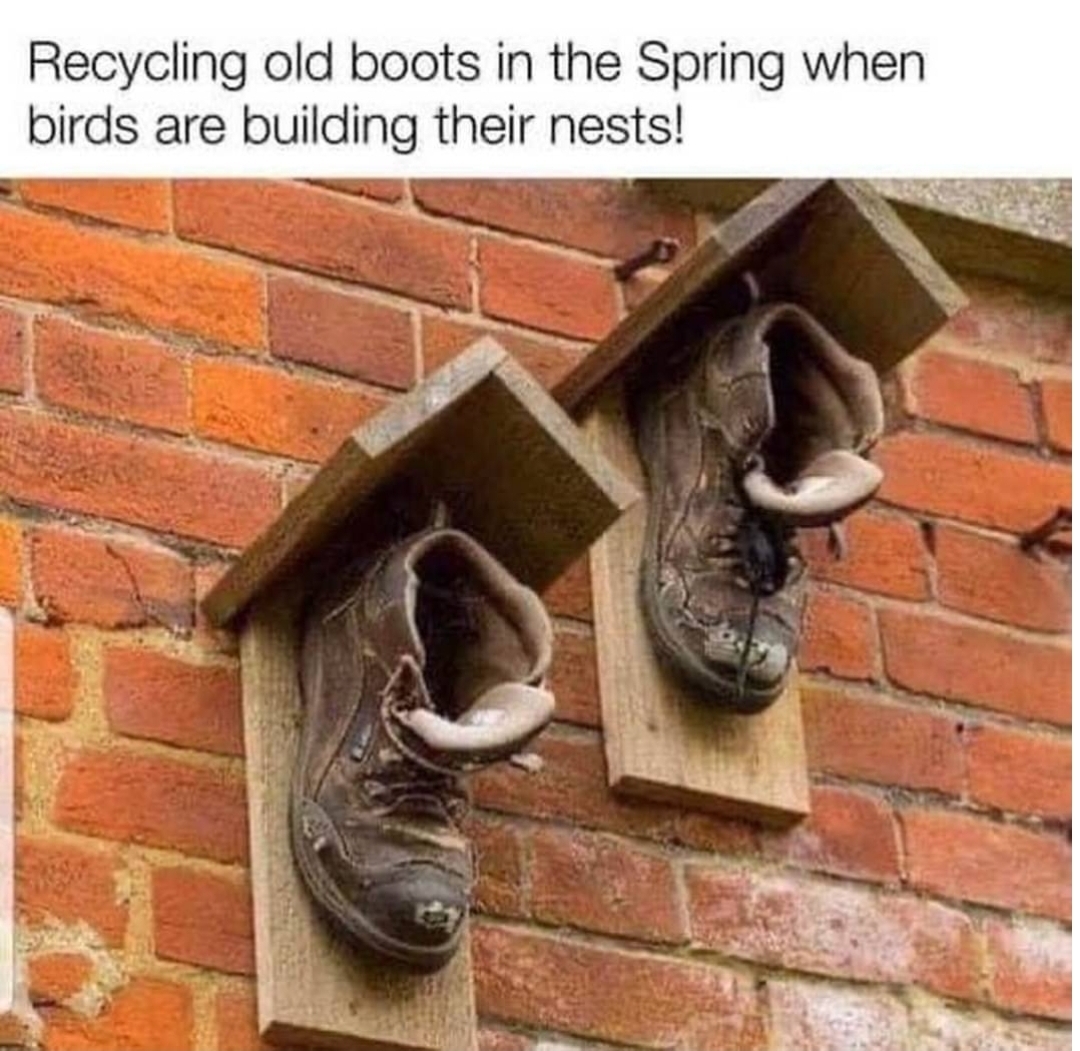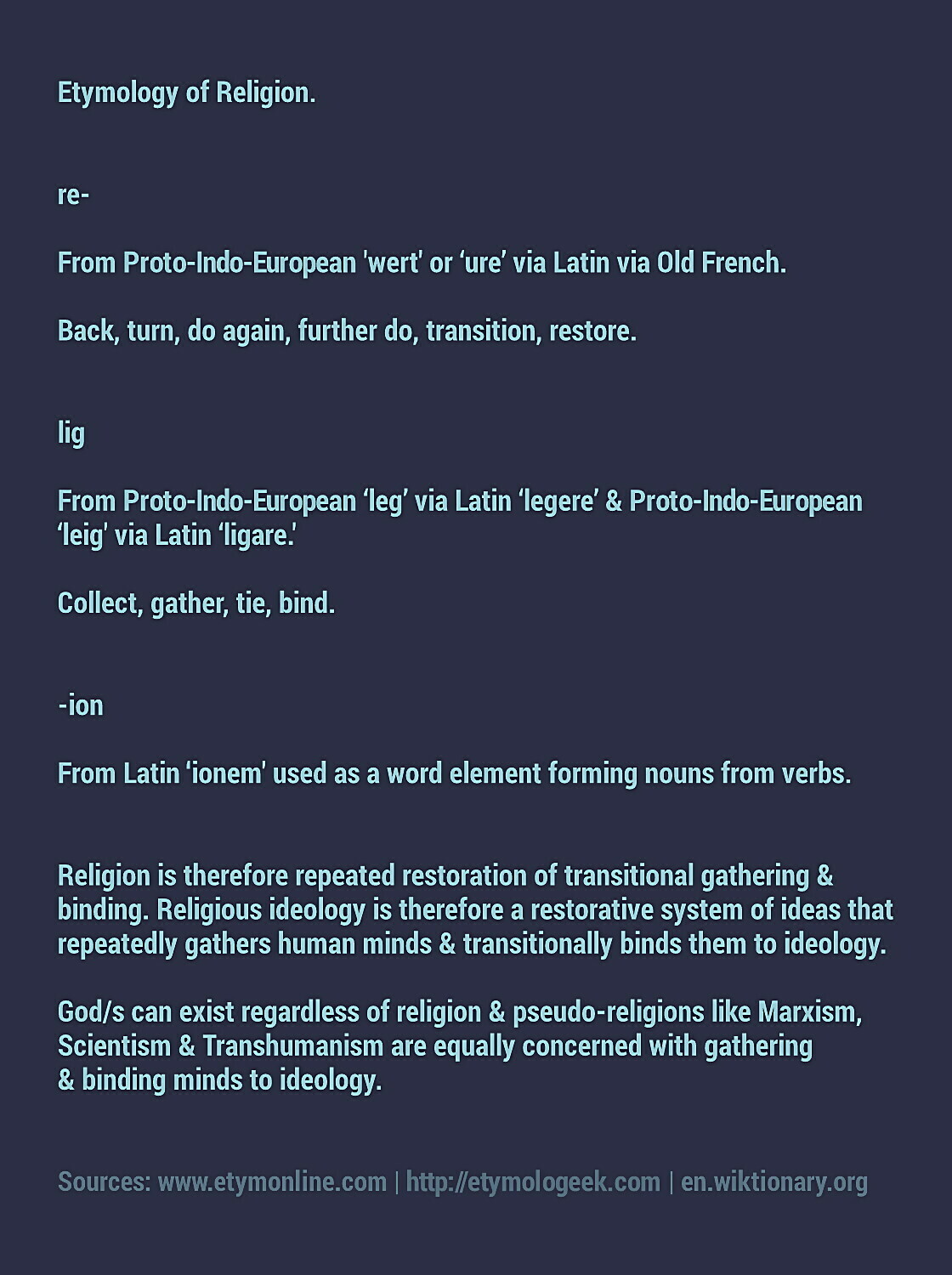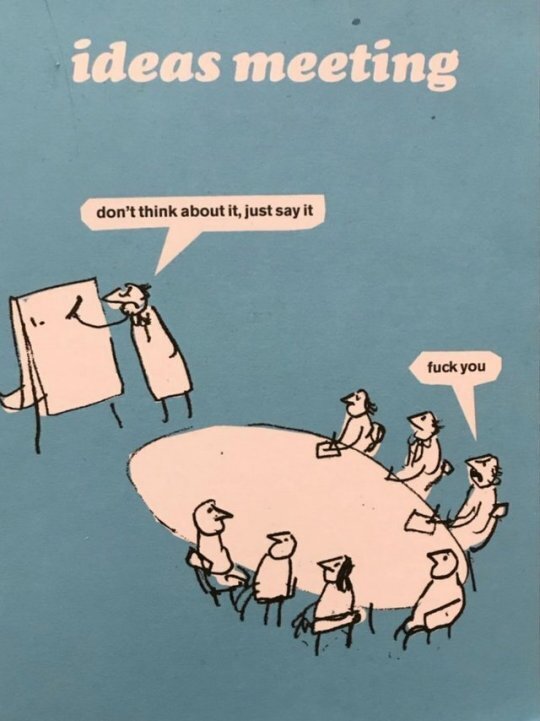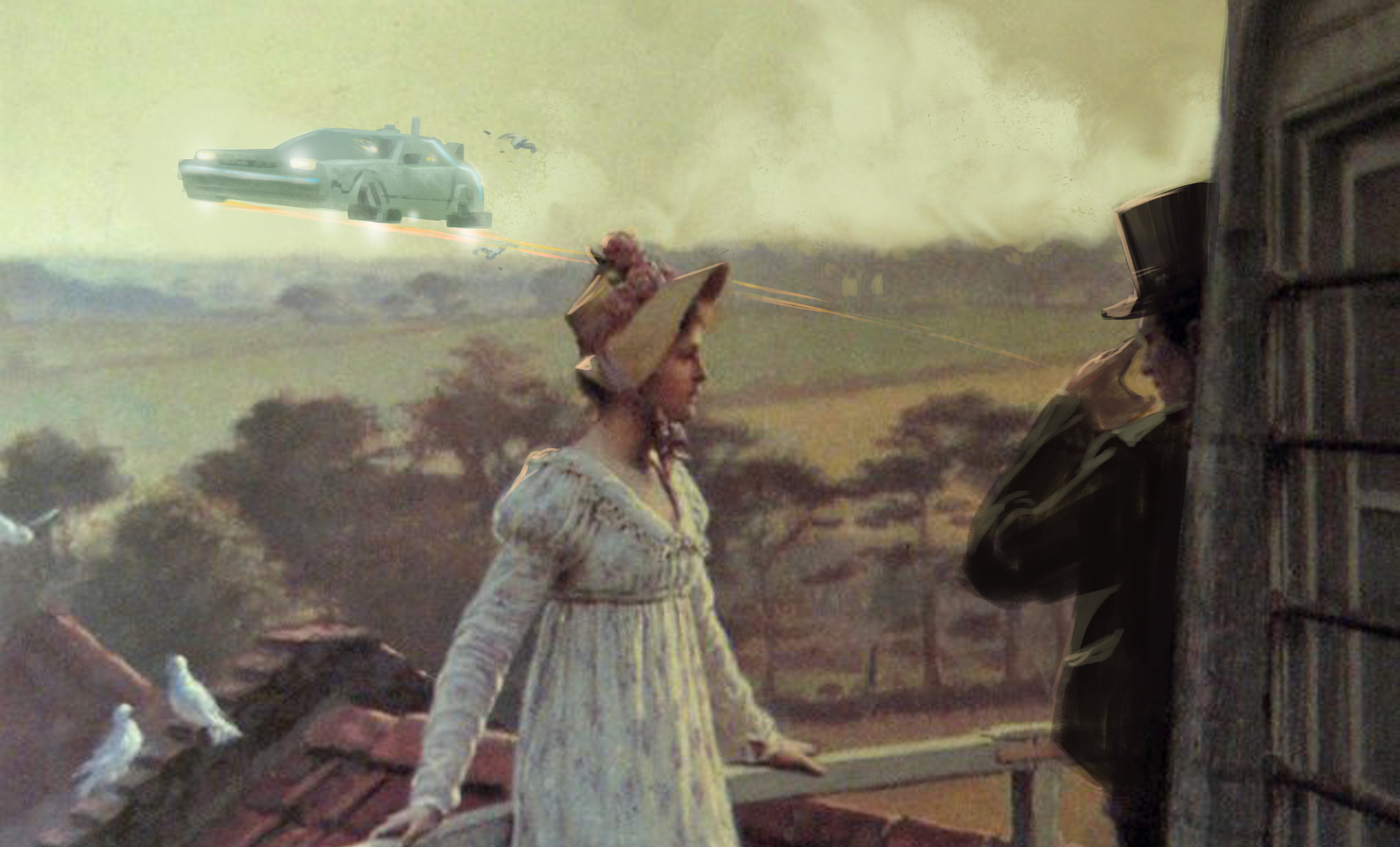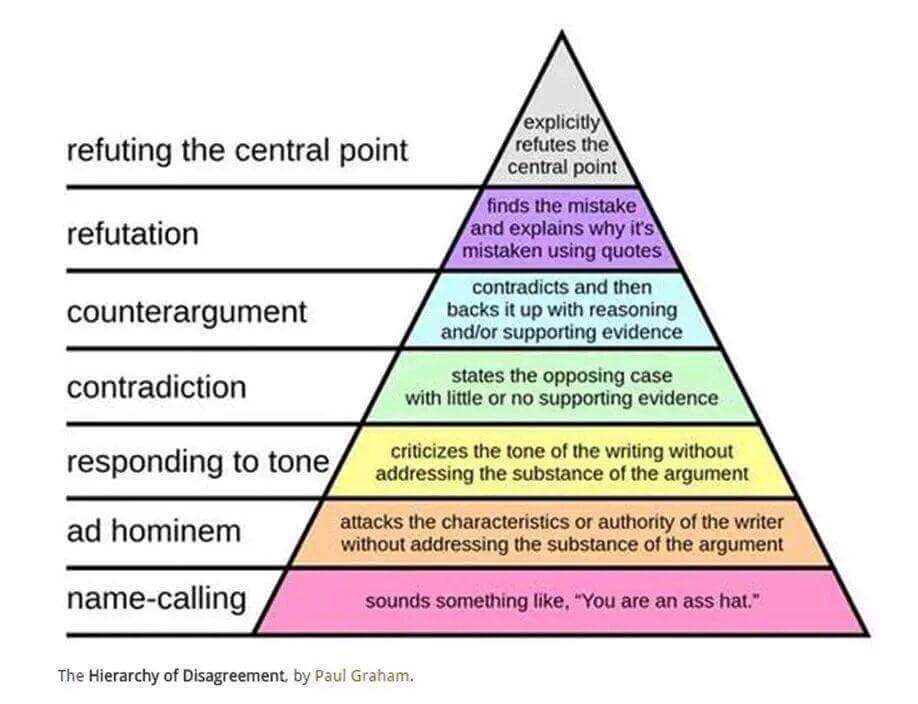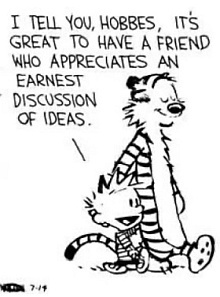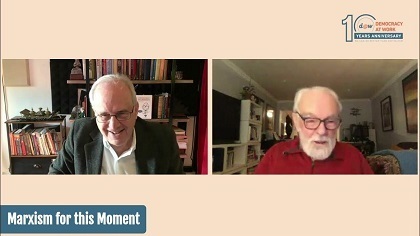#epistemology #belief #information #nonbelief #consciousness #mundaneconsciousness #humility #naiverealism #ignorance #arogance #ideas #agnotology #philosophy #entertaintheidea #entertainathought #proverb #6blindmenandanelephant #awareness #curiosity
as posted as a reply here: https://dnext.societas.online/posts/02ff18a0ec2f013afdac00505681eeb8#1ea009607e6c013ba78a00505681eeb8 to "I feel genuinely confused about the process you use to integrate knowledge in the pool. if not with information believed to be true, then how?" and in context of that exchange, and others, around the contentious controversial time of #TheEvent
i'll start with suggesting how i dont.
i dont pre-decide, dismissively decline to answer questions, be incurious. i dont attck different perspectives.
to then consider the other side of those statements affirming the negative,
i aknowledge i do not know, i answer questions, i ask questions. i take different perspectives as cue to learn.
prominently,
entertain the idea.
consider answers (my own, and others') in context (even as simply as "she/he said" contrast to "is true" (nor "is false")).
exploring rabbit holes.
and, though i've a long way to go for competence in this, deploy the socratic method, to evoke questioning, introspection, and curious enquiring humility, in others as much in myself.
as a satirical cartoon i made this morning has in text "Just as pens make poor binoculars, belief makes a poor means to determine reality" along with an image depicting someone with a pen infront of each eye. this speaks to the curiosity preserving, humility affirming, aproach, of non-belief.
some quotes/phrases/quips that further evoke or affirm the non-belief aproach i consider an ideal worth aspiring to:
leave no stone unturned in the search for the truth.
it is the mark of an educated mind, to entertain an idea without necessarily accepting, nor rejecting, it.
if ignorance is bliss, give me agony.
the ignorance that dies is not you.
this last one especially helpful reminder to overcome and avert succumbing to identifying with convictions, which is a terribly difficlut state of being to get out of, when confronted with perspectives that contradict currently held convictions/identification with world view.
further to this collection of epistemological affirming quips, there's the thing about 6 blind men and an elephant. it goes something like this:
there are six blind men, who come together, finding each other's voice, then the come across something... the first walks into the belly, and declares there's a wall between them. another walks into the leg, and declares it a tree. the next walks into the tusk and agrees, the man who said it's a wall is wrong, as he's found a branch, describing it a curved protrusion. the next man has encountered the trunk, and declares the man at the trunk wrong as it's in motion and soft, and wrapping around him, "it's a snake" he shouts. the man at the back hears these two, and grabbing the tail, declares them both fools, and says it's a cow. the man at the ear, tells them they're all wrong, and that it's a giant bat. the argument continues, as they each assert the details of the piece of evidence they have. eventually, someone with sight comes along, hearing the ruckus, and explains the situation to them, guiding them to each other part, to get a more complete picture.
there are many versions of this old story. very useful for helping alleviate the blinding certainty, born of the danger of a little bit of information.
a little bit of information, is a dangerous thing.
and that's where we always are. the famous dunning kruger graph, speaks to this same area, where certainty is born fast of deluding the information got being the information there is, before discovering the greater complexity.
so again, it comes to asking questions, to keep enquiring, to introspect to catch ones own blinding arrogance. arrogance, can often be well characterised as ignorance squared. as in ignorance of own ignorance. (and then feel free to recurse that further).
further, than many apply these insights...
all i know is i know nothing, and sometimes i forget even that much.
the first part of this, is a paraphrasing of the socratic seed maxim of wisdom and humility. this can be derived, born of, proceeding to continue to introspect and query any assertion... following this process, you invitably find the extents, the limits, of our knowledge, finding the end basises where one has to confront an assumption underpinning subsequent conclusions is but an unfounded assumption.
the second part, is a reminder to restore this humility, an innoculation against the arrogance of conviction and identity as one who has become infallible by merely having chirped "all i know is i know nothing".
this leads to another quip of mine (iirc, i started using in 1999)
everybody needs a little bit of nihilism. emphasis on little.
& later phrased/prefaced/analogised as
nihilism's like salt.
everybody needs a little.
this is, as in, just enough to help destroy the identification bond, with cherished convictions and identities. not so much it destroys this and a thousand other epistemological sanities. not so much you give birth to delusional psychopathies, and countless other malignant pathologies of psyche and cognition.
by chance, the video i have playing in the background's saying:
her: ... scientists in our audience, but for the people who dont think of themselves as scientists, saying not only can you must, y'know, question this stuff when it comes at you when it's dressed up as science, because of course that's going to be a thing that they do when they're not actually revealing science to you.
him: yeah, or another way to say it: questioning the science is how you do science.
"not only can you, but you must"
this is science. not just questioning authority, but rejecting authority, and in that place where authority would alleviate you of your duty to think, or even deny you the right to think, instead, think.
receiving what to "think", without thinking, is not really thinking, it's belief, and belief in dogma, imposed, from pre-deciding there's an expert.
such role-centricity in this regard, is the logical fallacy of an adhominem. you cannot get to truth by such means. and if perchance you stumble upon it, it is no greater thing than a stopped clock being right twice a day. or perhaps more favourably, more forgivingly, the proverbial blind cat stumbling upon the dead rat. there may be some extra sense helping the way there, besides better sight. but you cant rely upon this as your means of determining reality. just waiting for rats to die, and perchance to pick up the smell. we have better senses than this. and in the reality the metaphor speaks to, we can rekindle these better senses with these insights, these cues, to realise, we're not blind, we need only open our eyes (or perhaps first wipe away the poison and blood that stings and occludes our vision).
so...
confusion's good.
or, at least, ability to reccognise onself confused, is good. in so far as it's better than cognitive dissonance persisting unrecognised, unchallenged. better than, guarding ones world view, stubbornly prejudicially clung to, inducing the hostile wilful ignorance of bigotry. and the hole such hostile bigotry digs for oneself, scaring away friends who would otherwise offer more information. the hole, of confirmation bias. the naive realism. the mistake of conflating absence of evidence as evidence of absence. and it's not just failure to find, not just failure to look, but actively shooing away the evidence, then deciding the evidence absent, and therefor (in another fail of logic) deciding the current world view is correct. naive realism, thinking what you think is reality, mistaking the map, for the terrain, and worsened with this bigotry, to actively prevent the map being updated with new information.
so, there's much to learn, from all...
some say to seek out those who are at least 10% better than yourself in some area... and that may help find better coat tails to hang on to get a little further, get a little closer to the truth, but it's fatally flawed and will never get you there, depriving yourself of better means of determining reality than accepting another's dogma, even if their dogma is not of ends, but of means. and, perhaps even more importantly, it disuades the idea that we can learn from all, that no matter how further behind in some area someone is, that we cannot learn from the interaction, from offering education, from seeking education from them, and education from within the interaction.
in a sense, this is getting to,
education begets education.
... and, perhaps drifting a little aside from answering the query, this reminds of my last year of college, when i discovered (from a mature fellow student) i'm dyslexic, and the education system had not picked this up in my 14 years of formal education (and still hadnt, since it was a fellow student who pointed it out to me), which, coupled with other failings and corruptions and perversions of education and pedagogy i'd noticed, became the straw that broke the cammel's back, and i gave up on formal education... and... the revelatory point of this little story... the subsequent year, alone, with a library card and an internet connection, i learned more, just in that year, than i had in the entire prior 14 years of formal education.
because i was questioning, i was curious. i was not merely being a spoon-fed drone of the system. i was not suffering the stultifications and stagnancies, i was not waiting upon the ridid schedules, i was not suffering under the educators' incompetencies, i was not struggling to ignore my curiosity to absorb inconsequentialities, i was not being left behind when missing a key part. i was free to more thoroughly delve into nuances, free to explore across subjects/topics/fields. i was de-silo'd. i was free to recoup my energies to use my energies as optimally as needs be, on demand, following the curiosity.
how?
curiousity's how.
curiosity and perseverence.
curiosity and humility.
humility to know i dont know.
not a corrupted humility that presumes an expert knows.
i know i dont know the expert knows.
which is neither believing the expert knows, nor believing the expert does not know.
it is this humility, that avails a perpetual receptivity.
not a desperate faux humility that seeks to be filled and closed as soon as possible.
remaining open minded.
remaining enquiring.
this is the science way, not the scientism dogmatic new religion way, the bastard child perverted from science.
"if scientism is my child, it was conceived from stollen sperm without my permission" -- science (to paraphrase one of Richard Matthew Stallman's quips regarding "open source").
open minded and enquiring.
so, when enquiring why someone asserts something they asserted (subtextually or plain overtly), and they decline to answer, or even attack for asking, it may be easy to presume all manner of failings on their part, moral, psychelogical, epistemological, or, maybe they know something, and have some other reason for not offering an answer.
this reminds of socrates, offering gratitude for every time those he enquires for truth with, for answering in a suitable manner. it's possible then to get whittling towards truth. if in place of an answer to the question, an insult or misdirection is offered, then we have to take a far longer route to get to the specific area of truth in question, and there's much more elsewise revealed in that response, to deviate through, perhaps discovering other plausibilities, ...
but... this gets tricky to word, and tricky to not get sucked down to their level.
consider, perhaps, "level"s there, could, among other considerations, refer to Graham's Hierarchy of Disagreement, (popularly known as "the debate pyramid").
at the top, is "centrally refute the point", then down to "refutation", "counterargument", "contradiction", "responding to tone", "adhominem", "name calling" (i hope i got that correct... just rattled off from top of my head).
this correlates fairly well with the mundane conception of consciousness.
though even there, in the mundane conception of consciousness levels, there's ample room above. the hierarchy of disagreement is just for that, and there's much more to explore beyond just that shows up as disagreement.
the mundane conception of consciousness, increases in awareness of context, and reduces leaping to belief in short-hand.
for example (... and, i hope i manage to do this justice, as, a prior attempt in irl conversation, failed to get there in time for my conversational counterpart's patient curiosity to allow... so hopefully i'll manage to do this justice with time enough to think of an adequate example.)
so... "jim's a dick". lets start it from this example. a declarative statement, emotively charged, with a judgement, and a pejorative. we might manage to peel this back with further knowledge, like, who said it, and so then we can know it more as "tom says jim's a dick", then further, with more context, of the emotion, the events, the illustrative meaning... and we're into increasing levels of consciousness. contrast this to the lower level of consciousness, the higher level of unconsciousness, or merely accepting the statement as fact, without challenging it, without probing it, without enquiry.
idk if that's a great example. better examples swirl tantilisingly just out of easy reach in my mind. familiar, but not tractionable enough yet for me to offer expediently as an elucidatory tool for others to easily grok.
but maybe that's another good example, a "right mistake"(/shortcoming), to help avail the space to reach for...
... "man's reach should exceed his grasp, else what's a heaven for."
both for me, and you, reading this.
similar to sitting with ones own awareness of confusion; awareness of not knowing. therein, the vacuum of humility, perchance, to find more. and ideally, find more, ongoing, and not just stuffing the first route-1 discovery into the sensory holes, re-imbuing stultifying blinding ignorance, and ignorance squared, in the naive realist declarative "i get it!" clinging to that dangerously little bit of information, attaining myopia, losing broader awareness.
and there's always more.
at higher topologies the paradoxes resolve.
and perhaps all paradoxes are resolved at the highest set of all topologies ?
... i dont recall, from my experience of omniscience. (note, this is not an argument from authority, nor ought ever be, in use nor consideration, for that is the ultimate folly; the ultimate self-defeating epistemological fail).
but it was the only time i felt i had grounds to say "i know". but keenly disapative as that is, like a dream upon waking, perhaps more a product of biology; of neurophysiology and neurochemistry.
i just find it an interesting aside, a point of noteworthyness, in this treatise about epistemological method and curious humility, that beings such as us, can experience, omniscience. and that there may (/nay, inevitably are) many beings who are "now" experiencing omniscience, aware of every portion of this happening now, every nuance of it, every scale of it, every part of every part...
i say "now", but, to have ever, is to always, at least while. like i say, it disapated quickly. cant take it all back with you.
and so it is also with our epistemological rummagings in the "normal" problem solving curious state of being.
there's always more.
so better not injure ourselves with the arrogance to presume to already know.
all i know is, i know nothing.
and sometimes...
i forget even that much.
...
and...
i put this forth, not as an expert.
i put this forth, keen for any and all parts of it to be challenged, to be offered differing perspectives upon, perchance to discover the elephant beyond the portion i fumble around with making perceptions of.
(ps, i hope that reads okay. rattled off fairly quick in one sitting. hopefully i didnt neglect to go back to edit unfinished parts, and hopefully it’s not to heavy on idiomatic phrasing to get lost in translation.)
